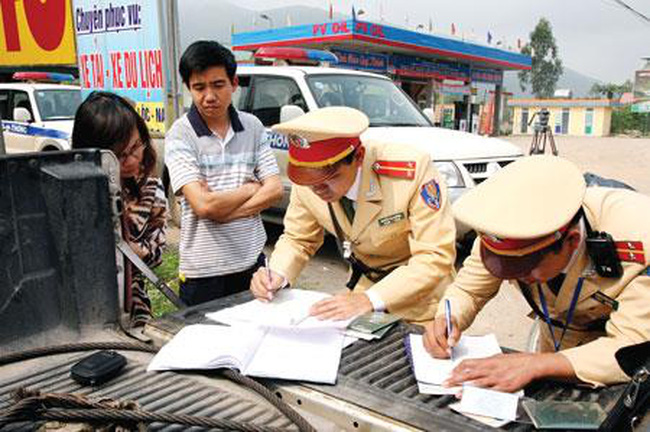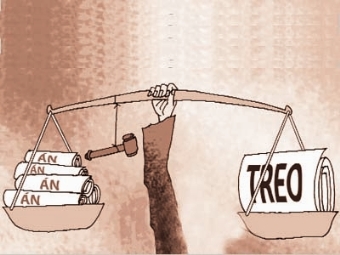Criminal liability in each stage of crime according to the 2015 Criminal Code of Vietnam
The determination of the penalty for an offender must be based on various factors, one of which is the stage of committing the crime. The 2015 Vriminal Code does not specifically stipulate the stages of a criminal act. However, based on the manifestations, signs, and developments of the act, it can be divided into four main stages: Preparation for a crime, attempted crime, completed crime, and voluntary abandonment of the crime halfway.
At each stage of committing a crime, the level of criminal liability will vary. The specific content will be presented in the article below:
Preparation Stage.
Preparation for committing a crime is considered one of the stages of the crime process, even though at this stage the crime has not yet employed acts that impact the target, criminal liability must still be borne according to the provisions of the Criminal Code (BLHS). However, not every crime carried out at the preparation stage implies criminal liability.
Clause 2, Article 14 of the Law on amendments to Criminal Code 2017 stipulates, "Acts committed falling into one of the crimes stipulated in the following Articles shall incur criminal liability at the preparation stage, including Articles: 108, 109, 110, 111, 112, 113, 114, 115, 116, 117, 118, 119, 120, 121, 123, 134, 168, 169, 207, 299, 300, 301, 302, 303, and 324 of the Criminal Code 2015."
Individuals aged 16 and older must bear criminal liability at the preparation stage if they fall under one of the aforementioned articles; individuals aged 14 to under 16 will only bear criminal liability at the preparation stage for Articles 123, 168 of the Criminal Code 2015.
The degree of criminal liability at the preparation stage is illustrated in the table below:
| Age Group | Degree of Criminal Liability | Crimes incurring criminal liability at the preparation stage |
| Over 18 years old | The penalty is decided within the sentencing framework stipulated in specific laws. For example: Article 108 Crime of Treason against the Nation stipulates "Persons preparing to commit this crime shall be sentenced to imprisonment from 1 to 5 years." |
Articles: 108, 109, 110, 111, 112, 113, 114, 115, 116, 117, 118, 119, 120, 121, 123, 134, 168, 169, 207, 299, 300, 301, 302, 303, and 324 of the Criminal Code 2015. |
| From 16 to under 18 years old | The maximum penalty shall not exceed 1/2 of the penalty stipulated in the sentencing framework for the act of preparation for crime stated in the applicable law. | |
| From 14 to under 16 years old | The maximum penalty shall not exceed 1/3 of the penalty stipulated in the sentencing framework for the act of preparation for crime stated in the applicable law. | Article 123, 168 of the Criminal Code 2015. |
Attempt Stage
Attempted crime is a stage of the crime process causing a higher degree of social danger than the preparation stage but lower than the completed crime stage. The perpetrator intentionally committed the crime but did not complete the crime for involuntary reasons.
Similar to the degree of criminal liability at the preparation stage, the determination of criminal liability at the attempt stage is based on the highest penalty of the crime. The applied penalty is limited to a certain lower rate compared to the highest penalty or the highest level of the maximum sentencing framework. Specifically:
| Age Group | Degree of Criminal Liability |
| Over 18 years old | - The penalty is decided according to the articles of the Criminal Code about the corresponding crimes depending on the nature, degree of social danger of the act, the degree of carrying out the intention to commit the crime, and other factors preventing the crime from being completed. - In cases where the applicable law stipulates the highest penalty as life imprisonment or death, the applied penalty shall not exceed 20 years imprisonment. - If it is imprisonment for a term, the applicable penalty shall not exceed 3/4 of the stipulated imprisonment penalty in the applied law. |
| From 16 to under 18 years old | - In cases of fines or non-custodial reform: shall not exceed 1/4 of the applicable penalty stipulated in the law. - In cases of imprisonment for a term:
|
| From 14 to under 16 years old | - In cases of non-custodial reform: shall not exceed 1/6 of the applicable penalty stipulated in the law. - In cases of imprisonment for a term:
|
Completed Crime Stage
A person's criminal act is considered complete when it satisfies all mandatory signs of constituting a crime. At this point, there has been an impact and consequence of the criminal act on the assaulted entity.
Therefore, depending on the nature, degree of social danger, and resulting consequences, the perpetrator must bear criminal liability within the sentencing framework stipulated in specific laws. For example: Article 141 Crime of Rape has a sentencing framework from 2 to 7 years imprisonment.
(Besides, determining the degree of criminal liability at the completed crime stage must also consider the perpetrator's age; this issue will be specifically presented in the next article).
Voluntary Abandonment of Crime
Voluntary abandonment of the crime means voluntarily not completing the crime, regardless of any prevention.
Individuals who voluntarily abandon the crime are exempted from criminal liability for the intended crime; however, if the actual act committed constitutes another crime, they shall bear criminal liability for that crime.
- Number of deputy directors of departments in Vietnam in accordance with Decree 45/2025/ND-CP
- Cases ineligible for pardon in Vietnam in 2025
- Decree 50/2025 amending Decree 151/2017 on the management of public assets in Vietnam
- Circular 07/2025 amending Circular 02/2022 on the Law on Environmental Protection in Vietnam
- Adjustment to the organizational structure of the Ministry of Health of Vietnam: Certain agencies are no longer listed in the organizational structure
- Vietnam aims to welcome 22-23 million international tourists in Vietnam in 2025
-
- What is Suspended Sentence in Vietnam?
- 01:25, 12/07/2024
-

- Guidance from the Supreme People’s Procuracy of ...
- 12:29, 11/07/2024
-

- 3rd Session, XIV National Assembly of Vietnam ...
- 08:21, 11/07/2024
-

- Compilation of 18 documents guiding the 2015 Criminal ...
- 01:31, 10/07/2024
-

- Is there any criminal liability imposion for failing ...
- 21:14, 09/07/2024
-

- Notable new policies of Vietnam effective as of ...
- 16:26, 11/04/2025
-
.Medium.png)
- Notable documents of Vietnam in the previous week ...
- 16:21, 11/04/2025
-
.Medium.png)
- Notable documents of Vietnam in the previous week ...
- 16:11, 02/04/2025
-
.Medium.png)
- Notable new policies of Vietnam to be effective ...
- 16:04, 02/04/2025
-
.Medium.png)
- Notable new policies of Vietnam effective from ...
- 14:51, 21/03/2025

 Article table of contents
Article table of contents

